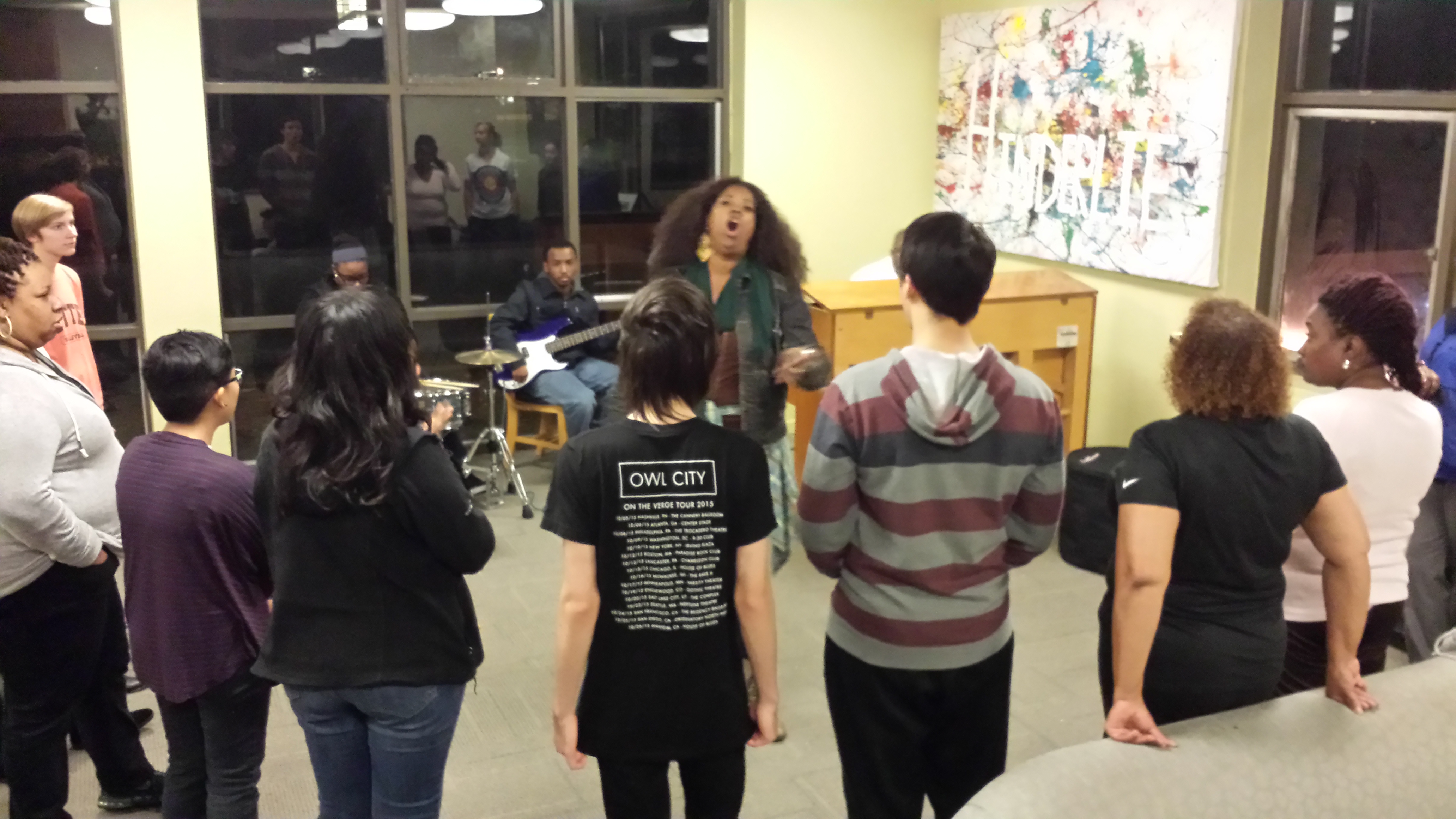

“Real men” are strong, straight and emotionless, much like the manly men in action movies. If a man isn’t any of these, he’s called a woman, which happens to be the worst insult to manhood.
PLU’s Men’s Project partnered with Tony Porter, a co-founder of “Good Men,” to challenge this stereotypical idea of masculinity. Porter has also given a TED Talk about healthy masculinity.
“Envision a world you want to see your little girl in,” Porter told the audience at the “A Call to Men” town-hall conference at Lincoln High School April 4.
“When she comes to age, as men, how do you want to see men acting and behaving in that world?”
No one suggested the strong and emotionless man in the movies. Most audience members said men should be respectful.
“Respect is what comes up. It’s the area men are coming up short,” Porter said.
Porter also said men are trapped in the ‘Man Box.’
The Man Box is a metaphor he uses to describe the social constraints placed on men.
Men are taught from a very young age to never appear weak or “like a girl.” Coaches will tell athletes to not throw like a girl.
“Why doesn’t the boy ask what he [the coach] is saying?” Porter said. “Because he knows exactly what he means — it’s [being a girl] a place of less value.”
However, when coaching girl’s sports, coaches find other ways to encourage athletes.
“Try harder,” Porter said as an example. “You can do it. I believe in you.”
Unlike girls, around the age of five, boys are no longer allowed to cry, Porter said.
“But all the women in here could just start crying,” Porter said. “There’s no rules on that.”
The underlying theme is men are strong. When a father leaves the house, he may tell his son that he’s in charge or is the man of the house.
An audience member admitted to telling his five-year-old this.
“What time did he go to bed, about seven?” Porter asked him. “What was he actually in charge of? We know he ain’t in charge of nothing.”
Porter asked the audience what this means about the mother. “We don’t mean it. We’re saying she ain’t in charge,” Porter said.
Porter told the audience that teaching boys this idea of masculinity actually leads to a world where violence against women is allowed.
“It’s a minority of men, but there’s a tremendous amount of violence against women,” Porter said.
Porter challenged the audience to reject the idea of stereotypical masculinity when given the opportunity.
“Reflect on aspects of manhood that may be harmful,” Porter said. “What are the ideas and messages they project? How does it impact you?”
Jonathan Grove, an organizer for “A Call to Men” and the men’s project coordinator, said he constantly talks with his son about the ideas of a healthy masculinity.
Last year, Grove’s son’s favorite color was purple. But then his son said, “That’s a girl color.”
When Grove said he asked his son why, he didn’t have an answer.
“[Men] tend to get caught up on society’s expectations of being a man,” Grove said. “We aren’t allowed to be human. We have to restrain that and it hurts. There’s no way for it not to.”
A $10,000 grant from the Verizon Wireless Foundation funded this event and other Men’s Project events.

















